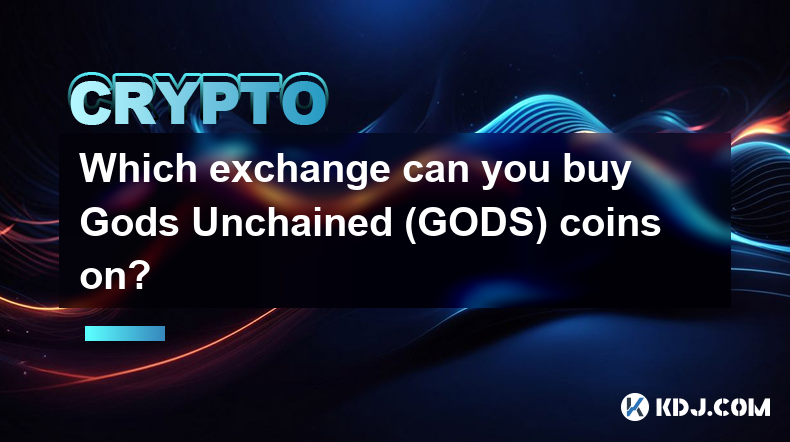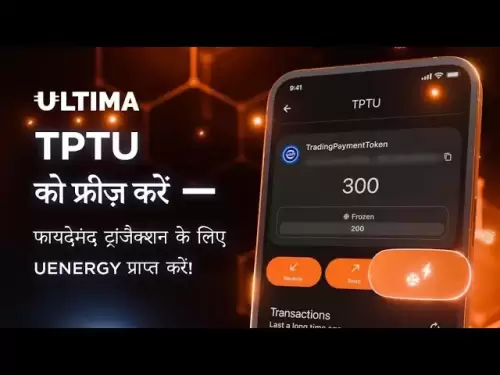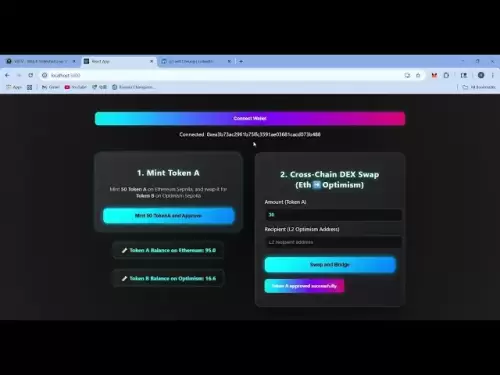-
 Bitcoin
Bitcoin $109,459.7682
2.44% -
 Ethereum
Ethereum $2,598.6052
6.29% -
 Tether USDt
Tether USDt $1.0003
0.00% -
 XRP
XRP $2.2734
3.95% -
 BNB
BNB $661.4886
1.58% -
 Solana
Solana $155.4825
4.35% -
 USDC
USDC $0.9999
-0.02% -
 TRON
TRON $0.2838
1.04% -
 Dogecoin
Dogecoin $0.1740
8.25% -
 Cardano
Cardano $0.6047
9.04% -
 Hyperliquid
Hyperliquid $40.2302
6.50% -
 Sui
Sui $2.9863
10.05% -
 Bitcoin Cash
Bitcoin Cash $509.5786
0.60% -
 Chainlink
Chainlink $13.8156
6.03% -
 UNUS SED LEO
UNUS SED LEO $9.0142
0.69% -
 Avalanche
Avalanche $19.0337
8.68% -
 Stellar
Stellar $0.2438
5.17% -
 Toncoin
Toncoin $2.9012
3.59% -
 Shiba Inu
Shiba Inu $0.0...01210
6.20% -
 Litecoin
Litecoin $90.0882
7.05% -
 Hedera
Hedera $0.1597
8.53% -
 Monero
Monero $326.3340
2.88% -
 Polkadot
Polkadot $3.6365
9.32% -
 Bitget Token
Bitget Token $4.6162
2.72% -
 Dai
Dai $1.0001
0.00% -
 Ethena USDe
Ethena USDe $1.0002
-0.01% -
 Uniswap
Uniswap $7.6403
10.47% -
 Pepe
Pepe $0.0...01060
12.03% -
 Aave
Aave $281.3664
7.56% -
 Pi
Pi $0.4992
1.76%
Which exchange can you buy Gods Unchained (GODS) coins on?
Whether choosing a centralized or decentralized exchange to purchase GODS depends on personal preferences, whether prioritizing user-friendliness and liquidity or anonymity and fund control.
Dec 26, 2024 at 07:17 pm

Key Points:
- GODS can be purchased on various centralized and decentralized exchanges.
- Centralized exchanges offer a user-friendly interface and high liquidity.
- Decentralized exchanges provide anonymity and control over funds.
- The choice of exchange depends on individual preferences and trading needs.
Step 1: Identify Centralized Exchanges that Offer GODS Trading
Various centralized exchanges support GODS trading, including:
- Binance: Known for its high liquidity and trading volume.
- KuCoin: Offers a wide range of altcoins and competitive fees.
- Huobi Global: A leading exchange with a strong presence in Asia.
- Crypto.com: A popular platform with a user-friendly interface and numerous cryptocurrencies.
- Kraken: A well-established exchange with a reputation for security and reliability.
Step 2: Create an Account on a Centralized Exchange
Register for an account on the chosen centralized exchange. The process typically involves providing personal information, verifying identity, and setting up secure login measures.
Step 3: Deposit Funds into Your Exchange Account
Fund your exchange account using a supported fiat currency or cryptocurrency. This allows you to purchase GODS with the deposited funds.
Step 4: Navigate to the GODS Trading Pair
Once your account is funded, search for the GODS trading pair (GODS/USDT or GODS/BTC). The trading pair represents the exchange rate between GODS and the quoted currency.
Step 5: Place a Buy Order
Select the type of order you wish to place (limit order, market order, etc.) and enter the desired amount of GODS you wish to purchase. Hit the "Buy" button to execute the trade.
Step 6: Receive GODS in Your Exchange Wallet
Upon successful trade execution, the purchased GODS coins will be credited to your exchange wallet. You can hold them there, trade them further, or withdraw them to an external wallet.
Step 7: Explore Decentralized Exchanges (DEXs) for GODS Trading
Decentralized exchanges, such as Uniswap and PancakeSwap, offer alternative options for buying GODS. These DEXs operate on blockchain technology, allowing users to trade directly without intermediaries.
Step 8: Connect Your Wallet to a DEX
Before trading on a DEX, connect your cryptocurrency wallet, such as MetaMask or Trust Wallet, to the platform. This allows you to interact with the DEX and use your funds to trade.
Step 9: Swap GODS via a DEX
Navigate to the desired GODS trading pair and input the amount you wish to swap. The DEX will automatically generate the exchange rate and transaction fees.
Step 10: Confirm and Execute the Swap
Review the transaction details and confirm the swap. Once executed, the GODS coins will be deposited into your connected cryptocurrency wallet.
FAQs:
Q: What is the best exchange to buy GODS coins?
A: The choice of exchange depends on individual preferences and trading needs. Centralized exchanges offer convenience and high liquidity, while decentralized exchanges provide anonymity and control over funds.
Q: Can I buy GODS coins with a credit card or debit card?
A: Yes, some centralized exchanges allow you to purchase GODS with a credit card or debit card. However, fees associated with this payment method may apply.
Q: How do I withdraw GODS coins from an exchange?
A: Withdraw GODS coins from your exchange wallet by providing the address of the external wallet you wish to transfer them to. Confirm the transaction and the coins will be transferred.
Q: Is it safe to store GODS coins on an exchange?
A: While centralized exchanges generally implement security measures, it is recommended to store large amounts of cryptocurrency in a hardware wallet for enhanced protection.
Disclaimer:info@kdj.com
The information provided is not trading advice. kdj.com does not assume any responsibility for any investments made based on the information provided in this article. Cryptocurrencies are highly volatile and it is highly recommended that you invest with caution after thorough research!
If you believe that the content used on this website infringes your copyright, please contact us immediately (info@kdj.com) and we will delete it promptly.
- Meme Coin Mania: Is BTC Bull the Next Big Thing in a Limited Time BTC Bull Run?
- 2025-07-03 12:30:11
- Bitcoin Soars to $109,000: What's Fueling the Crypto Rally?
- 2025-07-03 10:30:13
- Splatterhouse Rocks Retro Scene: A UK Magazine Deep Dive
- 2025-07-03 12:30:11
- Bitcoin, the Senate Bill, and $107K: A Wild Ride on Capitol Hill
- 2025-07-03 12:50:11
- Chainlink's Chart Patterns Hint at a Big Move: Decoding the LINK Price
- 2025-07-03 10:50:12
- Shiba Inu, Solana Uptrend, Bitcoin Breakout: Decoding the Crypto Buzz
- 2025-07-03 10:50:12
Related knowledge

How to customize USDT TRC20 mining fees? Flexible adjustment tutorial
Jun 13,2025 at 01:42am
Understanding USDT TRC20 Mining FeesMining fees on the TRON (TRC20) network are essential for processing transactions. Unlike Bitcoin or Ethereum, where miners directly validate transactions, TRON uses a delegated proof-of-stake (DPoS) mechanism. However, users still need to pay bandwidth and energy fees, which are collectively referred to as 'mining fe...

USDT TRC20 transaction is stuck? Solution summary
Jun 14,2025 at 11:15pm
Understanding USDT TRC20 TransactionsWhen users mention that a USDT TRC20 transaction is stuck, they typically refer to a situation where the transfer of Tether (USDT) on the TRON blockchain has not been confirmed for an extended period. This issue may arise due to various reasons such as network congestion, insufficient transaction fees, or wallet-rela...

How to cancel USDT TRC20 unconfirmed transactions? Operation guide
Jun 13,2025 at 11:01pm
Understanding USDT TRC20 Unconfirmed TransactionsWhen dealing with USDT TRC20 transactions, it’s crucial to understand what an unconfirmed transaction means. An unconfirmed transaction is one that has been broadcasted to the blockchain network but hasn’t yet been included in a block. This typically occurs due to low transaction fees or network congestio...

How to check USDT TRC20 balance? Introduction to multiple query methods
Jun 21,2025 at 02:42am
Understanding USDT TRC20 and Its ImportanceUSDT (Tether) is one of the most widely used stablecoins in the cryptocurrency market. It exists on multiple blockchain networks, including TRC20, which operates on the Tron (TRX) network. Checking your USDT TRC20 balance accurately is crucial for users who hold or transact with this asset. Whether you're sendi...

What to do if USDT TRC20 transfers are congested? Speed up trading skills
Jun 13,2025 at 09:56am
Understanding USDT TRC20 Transfer CongestionWhen transferring USDT TRC20, users may occasionally experience delays or congestion. This typically occurs due to network overload on the TRON blockchain, which hosts the TRC20 version of Tether. Unlike the ERC20 variant (which runs on Ethereum), TRC20 transactions are generally faster and cheaper, but during...

The relationship between USDT TRC20 and TRON chain: technical background analysis
Jun 12,2025 at 01:28pm
What is USDT TRC20?USDT TRC20 refers to the Tether (USDT) token issued on the TRON blockchain using the TRC-20 standard. Unlike the more commonly known ERC-20 version of USDT (which runs on Ethereum), the TRC-20 variant leverages the TRON network's infrastructure for faster and cheaper transactions. The emergence of this version came as part of Tether’s...

How to customize USDT TRC20 mining fees? Flexible adjustment tutorial
Jun 13,2025 at 01:42am
Understanding USDT TRC20 Mining FeesMining fees on the TRON (TRC20) network are essential for processing transactions. Unlike Bitcoin or Ethereum, where miners directly validate transactions, TRON uses a delegated proof-of-stake (DPoS) mechanism. However, users still need to pay bandwidth and energy fees, which are collectively referred to as 'mining fe...

USDT TRC20 transaction is stuck? Solution summary
Jun 14,2025 at 11:15pm
Understanding USDT TRC20 TransactionsWhen users mention that a USDT TRC20 transaction is stuck, they typically refer to a situation where the transfer of Tether (USDT) on the TRON blockchain has not been confirmed for an extended period. This issue may arise due to various reasons such as network congestion, insufficient transaction fees, or wallet-rela...

How to cancel USDT TRC20 unconfirmed transactions? Operation guide
Jun 13,2025 at 11:01pm
Understanding USDT TRC20 Unconfirmed TransactionsWhen dealing with USDT TRC20 transactions, it’s crucial to understand what an unconfirmed transaction means. An unconfirmed transaction is one that has been broadcasted to the blockchain network but hasn’t yet been included in a block. This typically occurs due to low transaction fees or network congestio...

How to check USDT TRC20 balance? Introduction to multiple query methods
Jun 21,2025 at 02:42am
Understanding USDT TRC20 and Its ImportanceUSDT (Tether) is one of the most widely used stablecoins in the cryptocurrency market. It exists on multiple blockchain networks, including TRC20, which operates on the Tron (TRX) network. Checking your USDT TRC20 balance accurately is crucial for users who hold or transact with this asset. Whether you're sendi...

What to do if USDT TRC20 transfers are congested? Speed up trading skills
Jun 13,2025 at 09:56am
Understanding USDT TRC20 Transfer CongestionWhen transferring USDT TRC20, users may occasionally experience delays or congestion. This typically occurs due to network overload on the TRON blockchain, which hosts the TRC20 version of Tether. Unlike the ERC20 variant (which runs on Ethereum), TRC20 transactions are generally faster and cheaper, but during...

The relationship between USDT TRC20 and TRON chain: technical background analysis
Jun 12,2025 at 01:28pm
What is USDT TRC20?USDT TRC20 refers to the Tether (USDT) token issued on the TRON blockchain using the TRC-20 standard. Unlike the more commonly known ERC-20 version of USDT (which runs on Ethereum), the TRC-20 variant leverages the TRON network's infrastructure for faster and cheaper transactions. The emergence of this version came as part of Tether’s...
See all articles

























































































